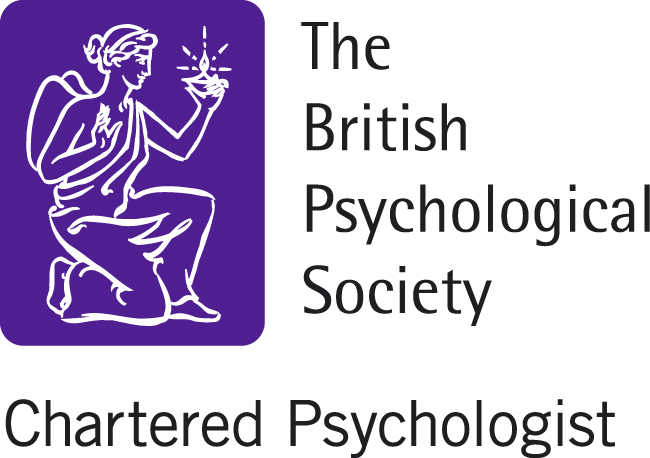Adult ADHD Assessments
Understand your patterns, discover your strengths and find out if ADHD could explain your experiences

As we are learning more about neurodiversity, an increasing number of people are wondering whether some of their patterns could be explained by ADHD (and/or autism). Our understanding about neurodiversity, including ADHD has developed a lot over recent years as more research has been completed around ADHD and people share their lived experience stories of what it is really like to have ADHD.
ADHD can affect people in a number of ways, including:
- Finding it difficult to keep attention on tasks or activities, unless they are of particular interest.
- Being distracted by the environment and finding it very difficult to re-focus on the task or activity they were working on.
- Finding it difficult to get organised for school, work and leisure activities.
- Finding it difficult to have a sense of time or manage time.
- Losing and/or forgetting things.
- Feeling restless inside and needing to move a lot – either by moving their hands and feet, standing up and changing position a lot.
- Finding it difficult to relax and being constantly ‘on the go’.
- Talking a lot, which sometimes leads to interrupting others and/or finishing others’ sentences.
There are many strengths associated with ADHD, such as:
- An incredible capacity to focus on areas of interest for long periods of time – this is sometimes known as hyperfocus.
- Working incredibly hard to try and look out for difficulties with concentration and organisation and using a range of strategies and tools to try and help themselves. Neurodivergent people have often had to work incredibly hard at adapting, meaning they demonstrate flexibility and resilience.
- Creativity and a great ability to develop unique ideas and solutions, or ‘thinking outside the box’.
- Being in physically active jobs or using physical activity to help regulate an inner sense of restlessness.
- Being spontaneous, taking risks/opportunities and seizing the moment.
- Lots of energy!
An ADHD assessment with Dr Jo at Join Psychology focuses on both the strengths and difficulties that ADHD brings. You may have lots of questions about the ADHD assessment process, so I have listed some of the main questions and answers below, but please contact me if you have other questions and I'm happy to help.
Why has ADHD been missed in some adults?
ADHD may have been missed in younger years because parents and teachers may have had particular ideas about what ADHD is and how it affects people. We commonly hear our clients and their family members describe how they did not think that ADHD explained their experiences because they were not “naughty", “hyperactive” or “in trouble” at school. There have been many misconceptions about ADHD and how it affects people.
ADHD in girls and women has also been greatly under-recognised and there are a number of reasons for this, some of which include the understanding of ADHD, societal assumptions and expectations about gender and masking of ADHD traits.
Our understanding of neurodiversity is changing and there is now lots of information more widely available about ADHD and how it affects people in different ways. Some people start to wonder about ADHD when they hear the lived experience stories of other neurodivergent people which sound similar to their own experiences.
What are your waiting times for assessment?
Our assessment process has been carefully developed to ensure it is structured, comprehensive, and efficient. This allows us to offer timely appointments, typically within a few weeks, while still providing the depth, care, and professional integrity you can expect from Join Psychology.
What are the potential benefits of an ADHD assessment?
The potential benefits of engaging in a formal assessment of ADHD can include:
- An understanding of your patterns and why you may experience certain difficulties.
- Learn to identify and reconnect with your strengths.
- Beginning to identify better coping strategies and practical techniques to make life easier.
- Access to the right kind of support and benefits from health professionals. Educators and employers can make reasonable adjustments to help you in education and/or work if ADHD affects you in those settings.
- Finding a community of other neurodivergent people who experience similar things to you and can offer support.
What are the potential downsides of an ADHD assessment?
The potential downsides of an ADHD assessment can include:
- The assessment process is thorough and detailed which can be tiring and emotionally demanding for some people.
- The outcome of an ADHD assessment can affect people in different ways. A diagnosis of ADHD may or may not be made. Some people can experience strong feelings about the outcome.
- Access to medication for ADHD, particularly in the NHS can be difficult in some areas.
What is involved in an ADHD assessment?
There are several stages in an ADHD assessment which are outlined below. ADHD assessments can be completed in-person, online or a combination of both.
I understand that the idea of an assessment can feel intimidating and a little overwhelming. I will work together with you to make sure you feel comfortable and confident during the assessment. Assessments are LGBTIQA+ affirmative, to ensure everyone feels comfortable every step of the way. I can also make adjustments to the assessment process to help you feel more comfortable. Contact me to discuss what adjustments you might need and I can also provide some examples of changes we can make to ensure the assessment process suits your needs.
- Step 1 - Initial consultation: We will meet for an initial consultation to talk about the reasons for seeking an ADHD assessment and to take some background information. You'll also complete some forms and questionnaires relating to ADHD. I'll consider whether there is a clear reason for you pursuing a full ADHD assessment and explain the options.
- Step 2 - Forms, questionnaires and background information: You and someone who knows you well will be invited to complete some more forms and questionnaires reflect on your experiences relating to possible ADHD. I will also ask you to share any other relevant background information, such as school reports and letters/reports from health care professionals you've seen in the past.
- Step 3 - Assessment interview: I'll meet with you and someone who knows you well to complete an interview relating to the core ADHD diagnostic criteria. This is a guided conversation about the core experiences in ADHD over the course of your life.
- Step 4 - Computer-based task: You'll complete a 20-minute computer-based task called the Qb-Check which measures some of the core patterns in ADHD.
- Step 5 - Feedback session: We will meet to talk about the diagnostic conclusion and any recommendations made.
- Step 6 - Report: I will write a full report summarising the information gathered, the diagnostic conclusion and recommendations.
There have been some concerns more recently in the media about the robustness of some ADHD assessments. I can assure all of my clients that the ADHD assessment process at Join Psychology is very thorough and follow the national policy guidance for the assessment of ADHD in adults and I outline this process in the reports which are shared with you at the end of the assessment.
Do you offer dual/combined ADHD and autism assessments?
Yes, Dr Jo is able to assess ADHD and autism together (also known as AuDHD) if you believe you might have ADHD and/or be autistic.
You say you specialise in women – do you assess men as well?
Absolutely – yes, I do. My work has a strong focus on supporting women and girls because their experiences are often under-recognised, but I very much welcome men too. Many men also find themselves questioning whether ADHD (and/or autism) might explain some of their lifelong patterns, strengths, and challenges, and I am always glad to support them in exploring this. The assessment process I offer is the same for everyone: thoughtful, respectful, and tailored to each person’s story. If you are a man considering an assessment, please know you will be met with the same warmth, care, and attention to detail. You are very welcome here.
Do you accept referrals under Right to Choose?
Join Psychology does not hold a contract with the NHS and therefore, we cannot provide ADHD assessments under the Right to Choose scheme.
Will an ADHD assessment always lead to a diagnosis?
An ADHD assessment may not always lead to an ADHD diagnosis. The assessment gathers all the relevant information to help the clinician decide whether they think you meet the diagnostic criteria for ADHD. Sometimes, a diagnosis of ADHD will be made and sometimes, no diagnosis will be made. In some circumstances, the assessment may be inconclusive, for example, if there are gaps in the information available or limited collateral/supporting information. I will make suggestions relating to what might explain your experiences and help you in future, if these are clear in the assessment.
If an ADHD diagnosis is made, I will specify which presentation best describes your experiences. There are 3 possible presentations in ADHD, including:
- Inattentive presentation – predominantly inattentive patterns are present and impacting your life.
- Hyperactive/impulsive presentation – predominantly hyperactive/impulsive patterns are present and impacting your life.
- Combined presentation – patterns of inattention and hyperactivity/impulsivity are both present and impacting your life.
Do you offer post-diagnostic/discovery support and coaching?
I can provide post-diagnostic/discovery support to help you personalise and understand the meaning and impact of ADHD in your life, including how it affects you, your relationships and work. My approach to post-diagnostic/discovery work with you will always include a focus on the strengths associated with ADHD, alongside the challenges and what can be done to help.
I may sometimes signpost you to another service who are able to provide more specific help, such as ADHD coaching to develop strategies to manage some of the difficulties you might experience related to ADHD. My expertise lies more in making sense of the meaning and impact of neurodivergence in a person's life and making longer-lasting changes than in short-term, coaching-style work.
Can you prescribe medication for ADHD?
I cannot prescribe medication for ADHD as this can only be prescribed by a specialist clinician, such as a psychiatrist or a nurse prescriber. I am part of a partnership programme with another private practice who will see clients assessed and diagnosed with ADHD by me (Dr Jo Coombs) for consideration for medication. If an ADHD diagnosis is made and you'd like to consider medication, I will share details of how you can self-refer to this practice. Alternatively, if an ADHD diagnosis is made, you can talk to your General Practitioner (GP) about whether they can refer you to your local NHS adult ADHD service for medication.
If you are clear from the outset that you would like to consider ADHD medication (if a diagnosis is made) and need to access this via the NHS rather than a private provider, I recommend that you discuss with your local NHS adult ADHD service whether they accept clients for medication who have been assessed and diagnosed with ADHD by a private provider. Some NHS services will not accept clients for medication (or other support) if they have been assessed and diagnosed with ADHD outside of the NHS. This varies, based on location and so it is best to check with your local adult ADHD service whether they will see people for treatment who have been diagnosed with ADHD in the private sector. You should do this before you begin a private ADHD assessment.
Some private ADHD medication prescribing services aim to set up shared care prescribing with your General Practitioner (GP) surgery once you are stabilised on ADHD medication. It is highly recommended that you discuss with your GP surgery whether they will consider a shared care arrangement with a private prescribing service and take over regular prescribing of your ADHD medication longer-term. You should do this before you begin a private ADHD assessment if you believe you may like to access ADHD medication via your GP longer-term. Reviews of your ADHD medication will still need to be completed by a specialist prescriber at regular intervals, depending on assessed need.








